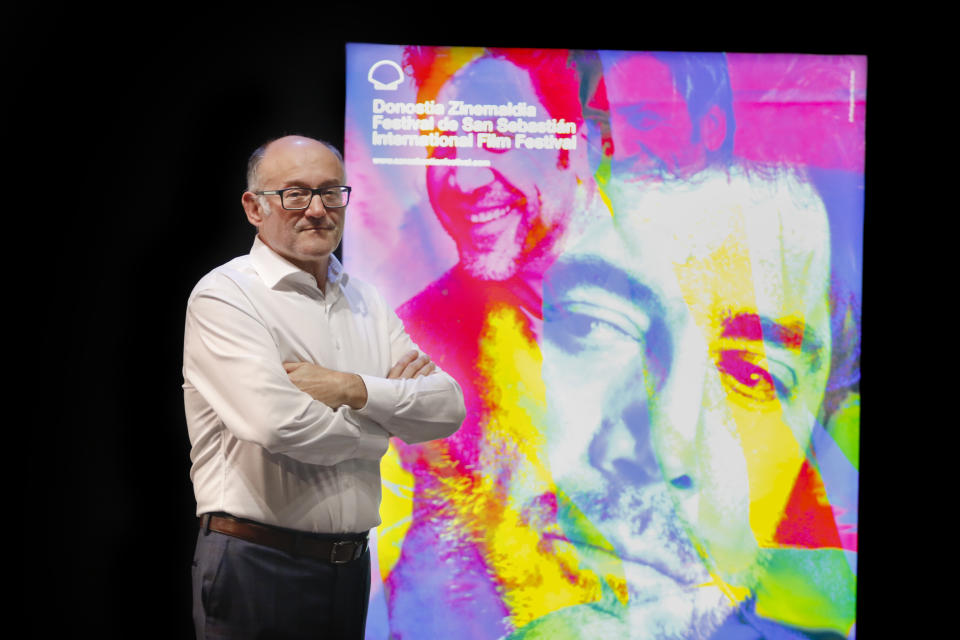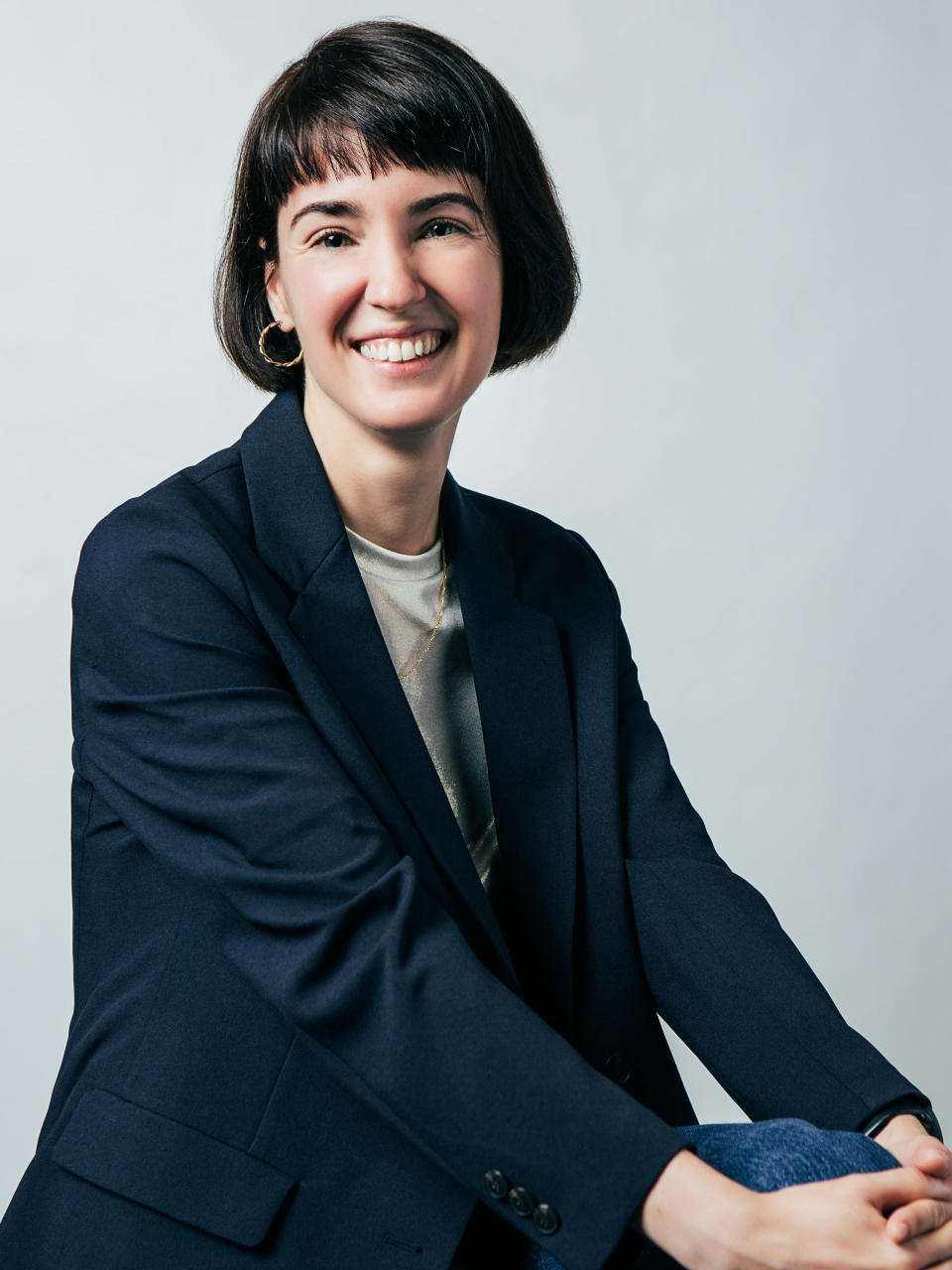Festival In Focus: How San Sebastian Has Become A Breeding Ground For New Talent

The San Sebastian International Film Festival has long been considered the most intimate of the A-list festivals, neatly wrapping up a hectic fall festival season as delegates descend on the enchanting seaside city in Northern Spain. But in the last few years, the event has cemented itself into a festival reputed for championing new talent and emerging voices across all sections of its programming.
Indeed, in the last four years, San Sebastian has awarded its top prize, the Golden Shell, to either directorial debut titles or second features, a sure sign that it takes its role as a promoter of rising talent seriously.
More from Deadline
This year’s edition, which takes place September 22-30, is no different, with the official competition having 11 films from first or second-time directors including: Raven Jackson’s debut All Dirt Roads Taste of Salt, which premiered in Sundance; Isabel Herguera’s animation Sultana’s Dream; Noah Pritzker’s second feature Ex-Husbands, starring Rosanna Arquette; Greek helmer Christos Nikou’s Fingernails with Riz Ahmed and Jessie Buckley, his second film after Greek Oscar entry Apples; and Kitty Green’s follow-up The Royal Hotel, starring Julia Garner.
“We are very happy with the line-up this year,” says deputy director Maialen Beloki. “We think it’s a good mixture between some of the names we all know in the film industry and also some newcomers – this is something we are very keen to promote.”
Indeed, all these newer talents are featured among some more established heavy hitters in the official competition section, such as Spanish veteran Isabel Coixet, Romanian helmer Cristi Puiu and Oscar-winning Brit director James Marsh.
“It’s very important for us to play a role in discovering newer talents,” says festival director José Luis Rebordinos, who adds that there are 63 first or second feature films across all sections of the festival. “It’s a strategy that has worked very well for us across the last few years and it is something that we feel makes the San Sebastian Film Festival unique.”

In addition to the Official Selection, there are numerous strands where more new voices can get a chance to compete such as the New Directors section (which this year is screening the European premiere of Mother, Couch by Niclas Larsson), Official Selection Horizontes Latinos, Zabaltegi for first and second features and Nest, the international competition for short films by film students, which is considered a breeding ground for new talent and one of the most significant sections of the festival. It gathers students from film schools all over the world who bring in their selected works to screen to festgoers and they can also participate in the screenings of their short films as well as in the discussions and masterclasses given by industry professionals.
Directors like Kira Russo, Isabel Lamberti, Grigory Kolomytsev and Oren Gerner all took their first steps in the section before going on to screen feature projects in other sections throughout the festival. For example, Russo’s short Nueva Vida, which won the Nest Award in 2015, screened her second feature El gran movimiento last year.
The festival’s headquarters are in the city’s Tabakalera Center for Contemporary Culture and, throughout the year, it works closely with the cultural center, Elías Querejeta Zine film school and the Basque film archive “so that we are able to create a new process so that we can foster talents all year long and feed them through the festival,” says Beloki. “The film school is the first step where we get to know new filmmakers.”
Ikusmira Berriak is the festival’s residency program, which was established joining by the festival and Tabakalera, is now firmly established and two films from this residency program are selected in the festival’s main competition program this year: The Rye Horn and Jackson’s All Dirt Roads Taste of Salt. Jackson began in the Nest student section with her short Nettles and she is, say the directors, a “very good example” of how they support talent throughout the year.
“This is the kind of strategy that we like to fulfil with new talents,” notes Beloki, who points the many filmmakers in the last few years who have taken part in the initiative that have gone on to feature at major international film festivals such as Elena López Riera and Elena Martín Gimeno.

The same applies to its industry strand WIP LatAm, which backs production of Latin American cinema. Sebastian Lelio and Jayro Bustamante both presented their first films at the post-production stage in this section while Maite Alberdi presented The Mole Agent at the Europe-Latin America Co-Production Forum.
The current situation is a result of the work that was done back in the mid-1970s at the festival, when the New Creators section was born and since then, the festival has programmed the first works of directors such as Pedro Almodóvar Olivier Assayas, Lila Avilés, Danny Boyle, Laurent Cantet, Isabel Coixet, Lee Daniels, Jonathan Glazer, Bong Joon-Ho, Lucille Hadzihalilovic, Ryusuke Hamaguchi, Agnieszka Holland, Peter Weir, Walter Salles, Nicolas Winding Refn and many others either in the New Directors section or in other competitive sections.
This year, the festival kicks off with the European premiere of Hayao Miyazaki’s The Boy and the Heron, which opened the Toronto International Film Festival earlier this month, which Deadline’s Valerie Complex called a “visual stunner” which “undeniably reaffirms Miyazaki’s status as one of the world’s most beloved filmmakers.”
“I think every festival wanted to have The Boy and the Heron,” says Rebordinos, whose good relationship with the film’s international sales agent Goodfellas played a role in snagging the anticipated title. The festival is honoring Miyazaki with its prestigious Donostia Award this year along with director Víctor Erice. Javier Bardem was also set to receive a Donostia Award this year but postponed his on-stage acceptance of the distinction until next year due to the ongoing SAG-AFTRA strike.
The strike, notes Rebordinos, has impacted things “a lot” while Beloki points out that “obviously having celebrities attend your festival is very important for international film festivals but this isn’t the main characteristic of San Sebastian.”
She adds, “The film teams will still be there as will directors so the encounters that will be going on between the audience and directors will make for a really nice environment.” The festival still expects talent such as Juliette Binoche, Gabriel Byrne, Mads Mikkelsen, James Norton and Dominic West among those who will appear at the festival galas.
Additionally, this year will see the second edition of its Creative Investors’ Conference, which it co-organizes with CAA Media Finance. Representatives from Amblin Partners, Anonymous Content, Blueprint Pictures, Goodfellas, HBO, Hulu, Infinity Hill, MK2, MUBI, Neon and Netflix will be participating in panels and networking activities from September 26-28. Rebordinos notes that this year’s edition will also feature more execs from Latin America.
“We are the smallest of the big festivals because I think we are a very accessible festival,” says Rebordinos. “It’s important for us that people who attend can access each other. We don’t want to be a very, very big festival – it’s impossible. We are a small city, but we have lots of artists and a loyal audience.”
Best of Deadline
SAG-AFTRA Interim Agreements: Full List Of Movies And TV Series
2023 Premiere Dates For New & Returning Series On Broadcast, Cable & Streaming
Sign up for Deadline's Newsletter. For the latest news, follow us on Facebook, Twitter, and Instagram.

 Yahoo News
Yahoo News 
